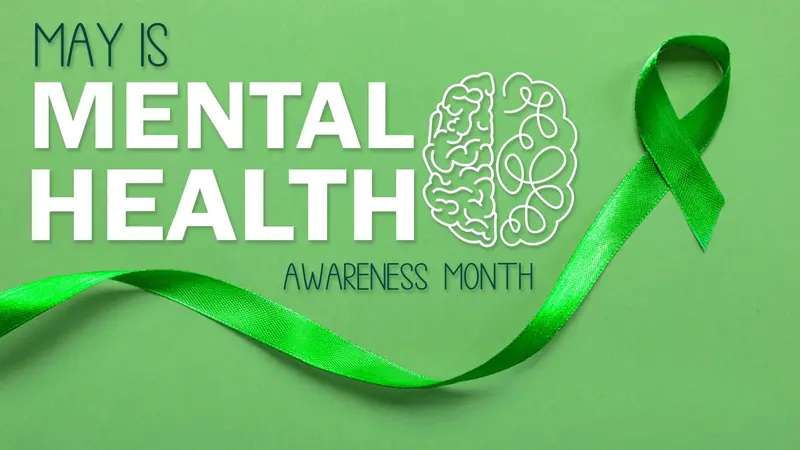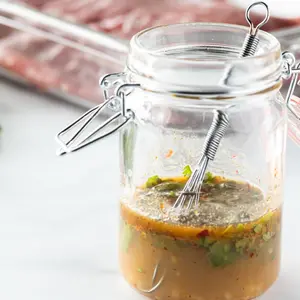

Food, Farming and Nutrition

Food, Farming and Nutrition
Naturally Overcoming Anxiety and Depression
There are certain key vitamins and minerals that changed my life so much that I decided to commit myself to a career in nutrition.
Today, we talk about foods and supplements rich in essential vitamins and minerals that are not only good for your body but are game-changers for your mind and clinically proven to decrease anxiety and depression, adding to your happiness factor.
That’s why we're excited to help you turn to your local health food store as your apothecary for a peaceful mind and heart.
A healthy brain is essential to regulating mood, and certain nutrients (or nutrient deficiencies) have a profound impact on maintaining normal brain function. Researchers have studied the association between vitamins, minerals, and specific foods that combat depression and boost our mood.
SIX Key Vitamins And Minerals For Anxiety And Depression
Let’s start with my personal favorite, chromium.
1: Chromium Picolinate
Chromium picolinate is a mineral found in everyday foods that may help atypical depression. Duke University scientists found that consuming chromium picolinate, a trace mineral naturally found in gluten-free whole grains, mushrooms, liver, broccoli, potatoes, and many other foods, has significant effects on individuals suffering from atypical depression.
When I learned about the power of chromium to lift mood, balance metabolism, and regulate blood sugar (insulin) 15 years ago, I had to try it. I was faithful to it for 16 weeks and not only did it help my all-over-the-place blood sugar so that I could regulate my moods and energy levels, but it also definitely lifted my mood. In fact, I felt a peace that I had never felt before in my life. This is the power of filling in nutritional deficiencies.
If you are planning to go beyond the food and want to supplement with chromium picolinate, the recommended dose (by Duke University scientists) is 200mcg with each meal.
In a small, double-blind pilot study at Duke University Medical Center, 7 out of 10 people with depression felt significant improvement after eight weeks.
Many are deficient in chromium and don’t even know it.
The effect of reversing a chromium deficiency? Balanced energy and stabilized moods.
2: Vitamin B6
Vitamin B6, also called pyridoxine, is one of 8 B vitamins. All B vitamins help the body convert food (carbohydrates) into fuel (glucose), which is used to produce energy.
We can’t really have energy and good moods when deficient in B vitamins. B6, in particular, is the go-to B vitamin for anxiety and sleep trouble. It has also been known to alleviate anemia.
According to the University of Maryland Medical Center,
“Vitamin B6 helps the body make several neurotransmitters, chemicals that carry signals from one nerve cell to another. It is needed for healthy brain development and function and helps the body make the hormones serotonin and norepinephrine, which influence mood, and melatonin, which helps regulate the body clock. Along with vitamins B12 and B9 (folic acid), B6 helps control levels of homocysteine in the blood. Homocysteine is an amino acid that may be associated with heart disease. Your body needs B6 to absorb vitamin B12 and to make red blood cells and cells of the immune system.”
You might consider supplementing with B6 if you have any of these symptoms:
- Muscle weakness
- Nervousness
- Irritability
- Depression
- Difficulty concentrating
- Short-term memory loss
Because food can be a powerful medicine, consuming high-quality wild tuna, sunflower seeds, pistachios, or grass-fed beef liver will stock you up on your B6.
3: The Miracle of Magnesium
Magnesium is a parent mineral that regulates its children: zinc and copper. You don’t want zinc and copper going rogue, or you will be dealing with a myriad of emotional and energy issues.
In addition to its parenting skills, magnesium plays over 300 roles in the body, supporting the smooth muscle and nervous system. Deficiency can result in constipation, anxiety/irritability, fatigue, mental confusion, and insomnia.
Magnesium also plays a significant role in the development of serotonin, which is a major contributor to feelings of peace, fulfillment, and general happiness.
When using food as medicine, this is where soaking your almonds and cashews to make a delicious nut milk blend would come in handy, as 1/8 cup of almonds gives you 79mg of magnesium and 1/8 cup of cashews gives you 74mg. Also ½ cup of cooked spinach gives you 78mg, so do try to get in your food as medicine.
We want to shoot to consume 400mg of magnesium via our food daily. For those who are deficient, that should be bumped up to 800mg and taking a supplement at night for 3-6 weeks can do the trick.
I like magnesium glycinate because it is highly bioavailable and activates the enzymes necessary for many physiological functions. It also helps regulate the acid-alkaline balance in the body.
4: Calcium
Having the proper level of calcium in your body is crucial for nerve, hormone, and bone health. We prefer people get enough from their diet, incorporating cooked organic leafy greens, full fat grass-fed yogurt, and high-quality raw milk.
It’s widespread knowledge that low levels of calcium can lead to brittle bones because when the body is deficient, it will pull calcium from the bones to maintain proper blood levels.
Many women are surprised to find that low levels of calcium may play a role in PMS-related depression. Calcium deficiency affects more women than men, so women should take special care to meet the daily requirements.
Remember, it’s not what we take, but what we absorb. So it’s always a good idea to add Vitamin D and Vitamin K to your regimen when trying to boost calcium.
Alternatively, high calcium can be an indicator of issues with the parathyroid gland not regulating it properly (often due to a benign tumor on one of the four parathyroid glands). Usually, this manifests as persistent insomnia and anxiety.
Given the Goldilocks nature of this mineral, it’s important to get your blood levels of calcium checked annually to see where you stand.
5: Iron
Any woman who’s had low iron knows the impact it plays on mood, leading to depression, apathy, and exhaustion.
Iron has the very important job of transporting oxygen throughout the body, which supports energy levels, muscle strength, energy, and beautiful hair.
Iron deficiency appears more frequently in women than men, especially women of childbearing age, so it's a very good idea to ask your doctor to check your ferritin levels at least once annually. Ferritin is a blood cell protein that contains iron, and it can help you understand how much iron your body is storing.
Consuming high-quality, grass-fed beef three times a week, as well as dark meat turkey, cooked spinach, and lentils should give you enough bioavailable iron to fill in a deficiency. If not, women should shoot for 18mg daily (men need 8mg/day) and get it in a non-binding liquid form of iron.
Here’s your mg/serving of specific foods if you plan to use food as your medicine for iron deficiency. Make sure you are digesting your food well or taking a digestive enzyme if not.
- Cooked spinach (1 cup): 6.5 mg
- Lentils (1 cup): 6.6 mg
- Beef (1 5oz. fillet): 3.8 mg
- Garbanzo beans (1 cup): 4.75 mg
- Turkey (dark meat) (1/3 cup): 2.0 mg
6: Folate
Commonly known as folic acid (folate is the food-based form that is much easier to absorb), this nutrient is crucial for proper brain function and plays an important role in mental and emotional health.
According to the University of Maryland Medical Center,
“It [folate] aids in the production of DNA and RNA, the body's genetic material, and is especially important when cells and tissues are growing rapidly, such as in infancy, adolescence, and pregnancy. Folic acid also works closely with vitamin B12 to help make red blood cells and help iron function properly in the body.”
We recommend 400 mcg/day as a good dose to shoot for to boost your mood and overall health and you can do that with these five superstar foods below. Notice how a lot of the foods are the same for boosting your mood? This is not that difficult to do through diet.
- Lentils (1 cup): 358mg (soak 20 minutes prior to cooking)
- Spinach (1 cup): 263 mcg
- Asparagus (1 cup): 262 mcg
- Brussels sprouts (1 cup): 156 mcg
- Avocado (1/2 cup): 59 mcg
Now, if you are pregnant or want to get pregnant within 90 days, you’ll want to consume 800mcg of folate daily.
Other Vitamins And Minerals For Anxiety And Depression
While these aren’t the only vitamins and minerals that contribute to healthy moods and alleviate depression, they play a major role.
Other noteworthy vitamins and minerals to address:
- Zinc
- Omega 3s
- Vitamin B12
- Vitamin D
Bonus Food As Medicine Tip For Anxiety And Depression
Your bonus Food as Medicine tip for anxiety and depression is to try eating 1/2 – 1 organic banana rolled in Himalayan pink salt with a handful of raw cashews or 1 tablespoon of cashew butter before bed.
I’ve been using this powerful combo on clients and myself for years. Bananas are loaded with Vitamin B6, a precursor to serotonin and melatonin; salt is packed with essential trace minerals for nervous system support; and the cashews contain your necessary magnesium hit to make all three ingredients work more synergistically for a peaceful night’s sleep and waking with a sense of calm.
“Let food be thy medicine.” – Hippocrates
This article is reprinted with permission from the author, Christa Orecchio, CN, HHC, and first appeared in The Whole Journey.


 By
By






